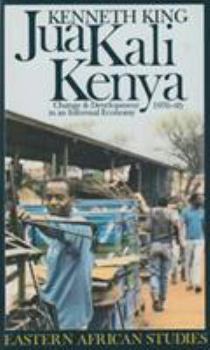Jua Kali Kenya: Change and Development in an Informal Economy, 1970-1995
Select Format
Select Condition 
Book Overview
Kenya was where the term "informal sector" was first used in 1971. During the 1980s the term "jua kali" -- in Swahili "hot sun" -- came to be used of the informal sector artisans, such as carworkers and metalworkers, who were working under the hot sun because of a lack of premises. Gradually it came to refer to anybody in self-employment. And in 1988 the government set up the Jua Kali Development Programme. In this remarkable book Kenneth King brings the subject alive through the photographs and life histories of jua kali people. He has also revisited, twenty years later, many of the artisans whom he interviewed exhaustively in the period from 1972 to 1974 and about whom he wrote in The African Artisan, one of the first full-length studies to be published on the informal sector. For donors, NGOs, and national governments, the book offers many relevant examples, and some cautions, about what has been achieved by ordinary Kenyans, mostly without government support. It will prove equally valuable for students and teachers of development policy, technology policy, and education and training policies not least because of its superb bibliography of over 700 entries related to small enterprise development.
Format:Hardcover
Language:English
ISBN:082141156X
ISBN13:9780821411568
Release Date:September 1996
Publisher:Ohio University Press
Length:256 Pages
Customer Reviews
1 rating
Great research into unknown known sector of the encomy
Published by Thriftbooks.com User , 27 years ago
This is a great book. I had never read about this sector of the economy. It shows that capitalism is alive and well at the grass roots level. Lets hope that the economic system allows it to prosper in the future.





